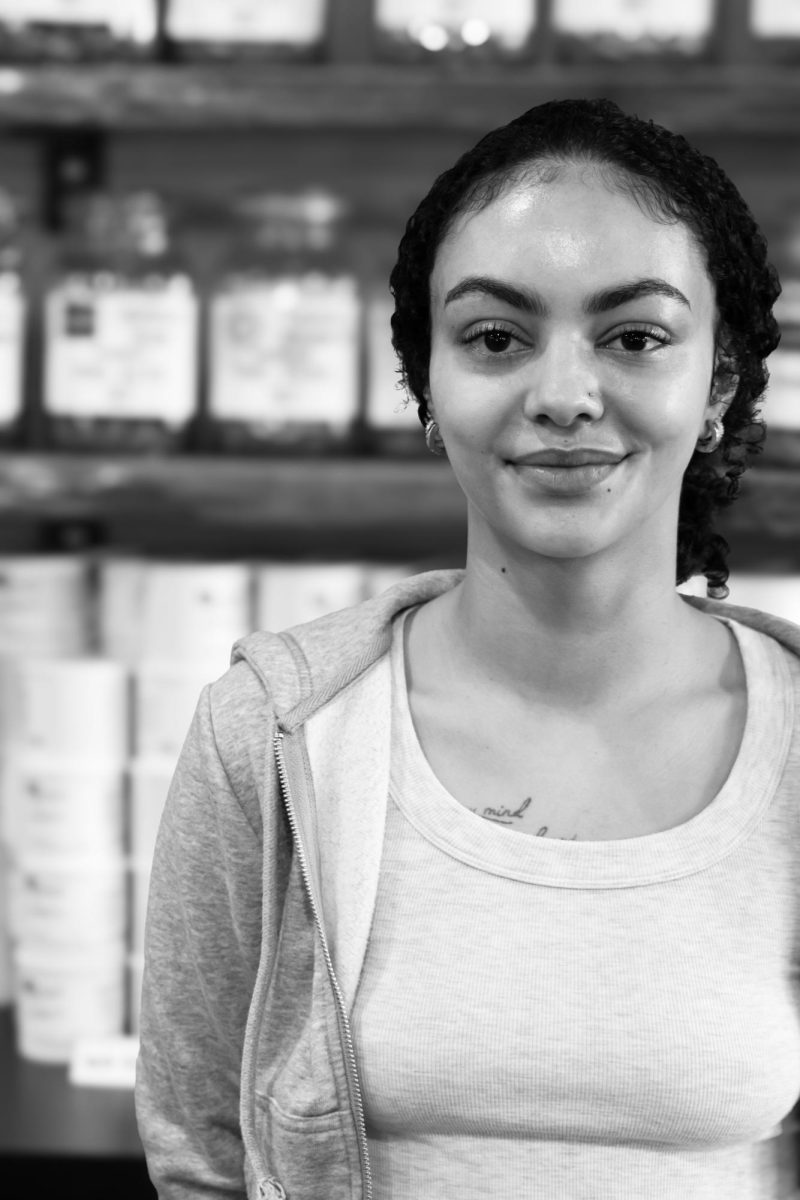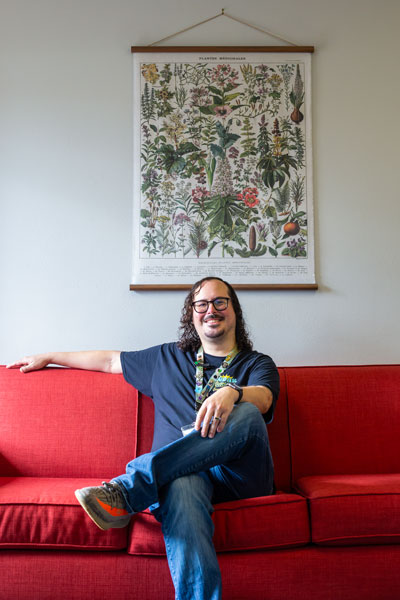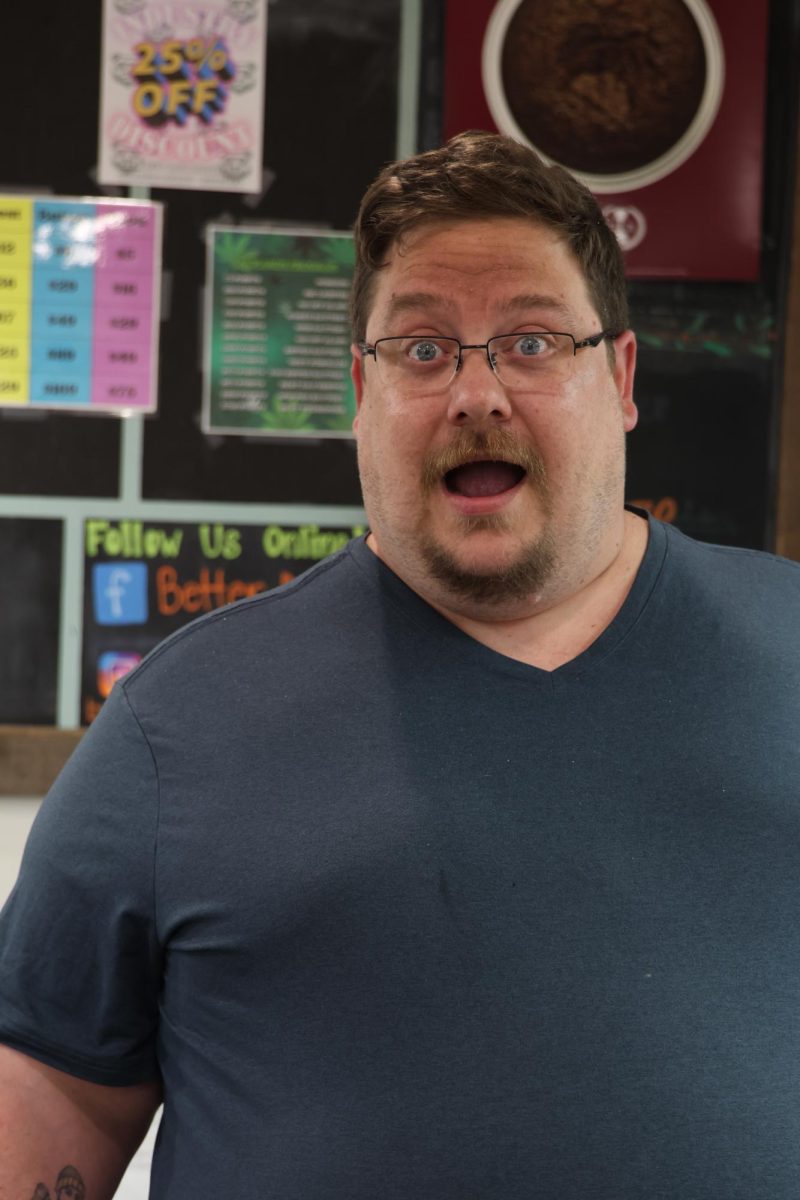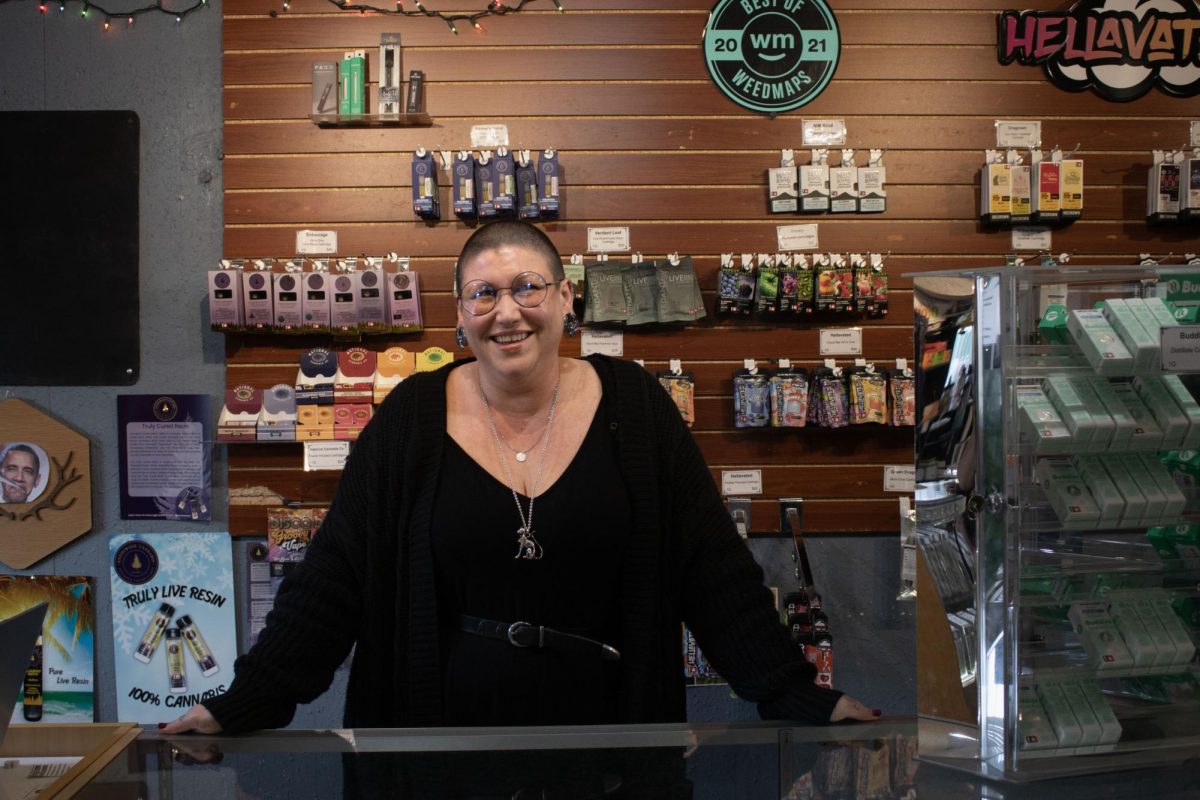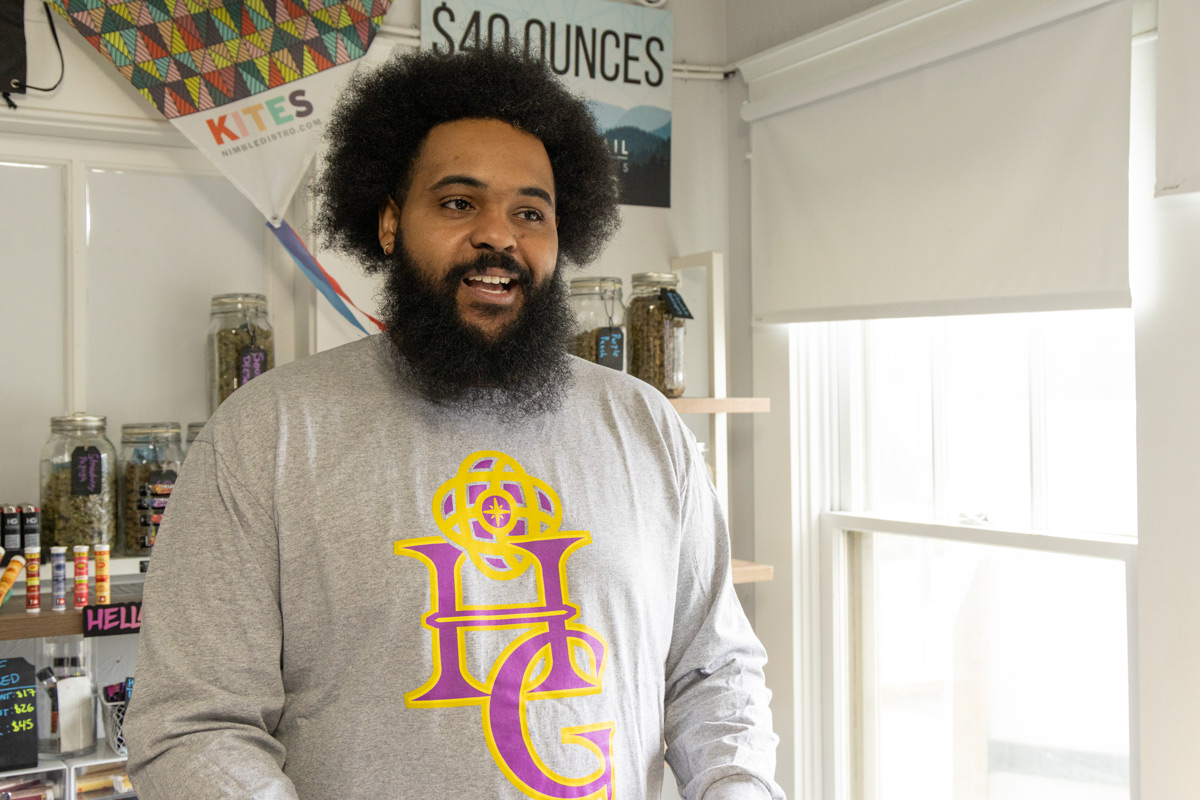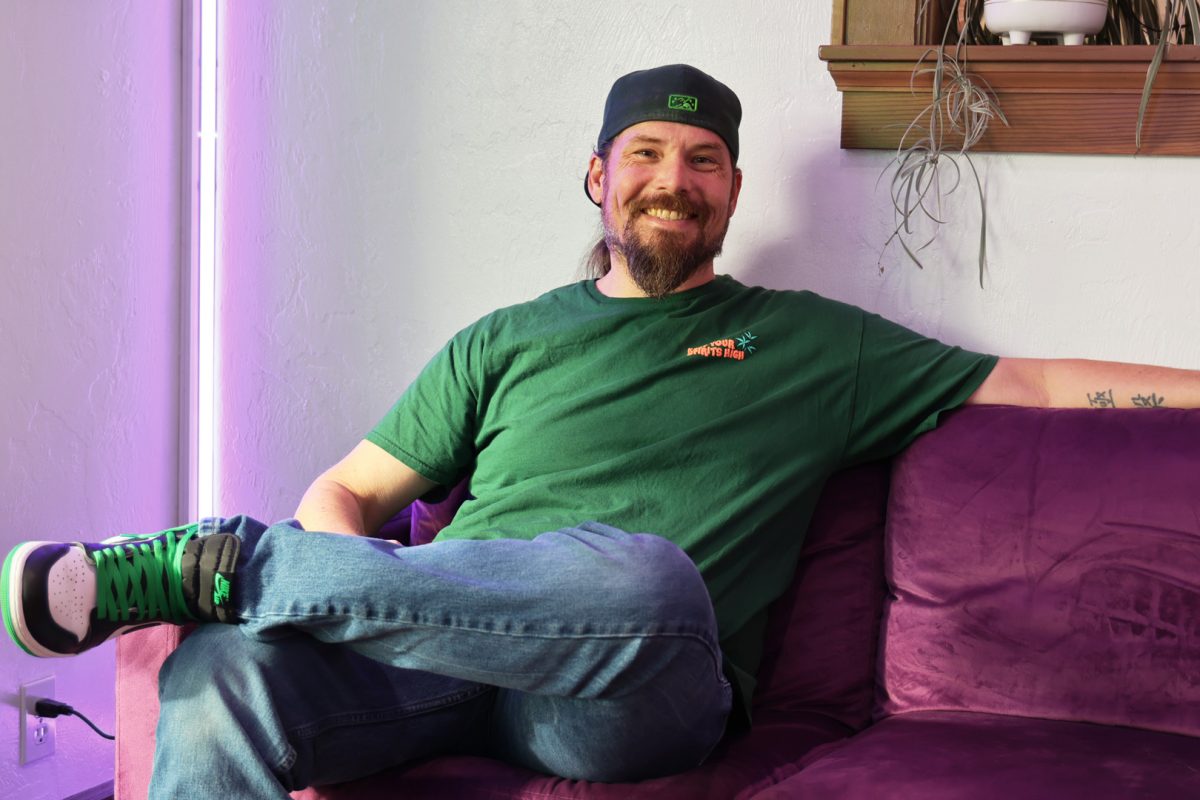Kirsten Hewes, budtender at Snugz Dispensary on 1235 Railroad Blvd, advocates for zippy cannabis, following your passion and having meaningful conversations as a member of the queer community. Unbothered by labels, their trans-masc identity can equate to “some fruity bastard,” as they self-describe.
What drew you to the cannabis industry, and how long have you been a budtender?
I’ve been doing this for a little less than a year now. I started budtending because I came into Snugz Dispensary all the time to buy weed, talked to everyone about cannabis and really enjoyed spending time here — especially having in-depth conversations about different types of strains and cannabis products. Because I was looking for work, one day I asked, ‘Can I work here?’ They responded with, ‘Well you smoked all the weed already so it seems appropriate.’ I love my job so much — and everyone who works here — and look forward to coming in every day.
Has your perception and relationship with cannabis changed since you started working in the industry?
I first had the perception of cannabis being a little bit illicit, and since I was raised by helicopter parents, I didn’t start smoking until about five to six years ago. When I realized how many people came into the store with medical issues, how they use weed to self-medicate or control certain symptoms, and then seeing how much of a community there is, my perception of cannabis changed immensely. There’s a lot of cool discussions we have in here, and I’m all about the smells and flavors. I love how in-depth I can get with people about cannabis — it’s like food or alcohol. It’s my favorite when someone comes in here and smells a bunch of different strains, and we can just talk.
How has cannabis intersected with queer lives and spaces?
I think there is a non-conformist attitude with the weed industry, which makes sense because it’s still federally illegal. I think the sensation of being ‘other’ in the queer community is resonant within the cannabis industry. I came from a background where people were afraid of weed — that’s what my parents and community in Oklahoma believed — and that reminds me of some of the misfit feelings you get within the LGBTQ space. Whenever people come into the store who haven’t been exposed to the queer community all that much, we have some great conversations about being open to new ideas and what it means to be in an outcast group.
What does “pride” mean to you?
Freedom to not be anything in particular. To just exist. The whole issue of pride is we’re trying to be seen, because if we don’t make an effort to be seen, then we’re just pushed under and forgotten. I just want to live my life, and part of that is wearing fun outfits, being kind of fruity and talking openly about my experiences. It’s important to talk to people and let people who might be ignorant or have misunderstandings about the queer community know that I’m not so different.
What’s your favorite strain?
I have five or six different sativas and indicas I like to hang out with. I like a dreamy sativa and also a zippy one. I really like Pineapple Aloha, which is my favorite zippy sativa. Blue Dream is for the dreamier side of things. For indica, I like Gelato and Ice Cream Cake. But I love having a range of different strains, then picking and choosing based on how I feel.
How long do you see yourself being a budtender?
As long as I can. I’m having a great time. I learned as early as I could that you can’t force a career that isn’t working for you. I was that kid who was really annoying — that knew what they wanted to do very early on: to be a saxophonist, an academic saxophonist. I wanted to teach people at the college level. I was looking for stability at that time. I went hard on that and had five years of college until I realized it just wasn’t me.
I quit academic music, and it was a burden lifted off my shoulders because I didn’t want to be in an office talking to academic musicians all day. I asked myself, ‘What do I want to do? I want to do something where I can chill out, have a good life and enjoy the day-to-day.’ The rule for myself was to not do anything I don’t enjoy, even if it’ll be harder to make ends meet. I enjoy talking to people, especially talking to people about cannabis.


